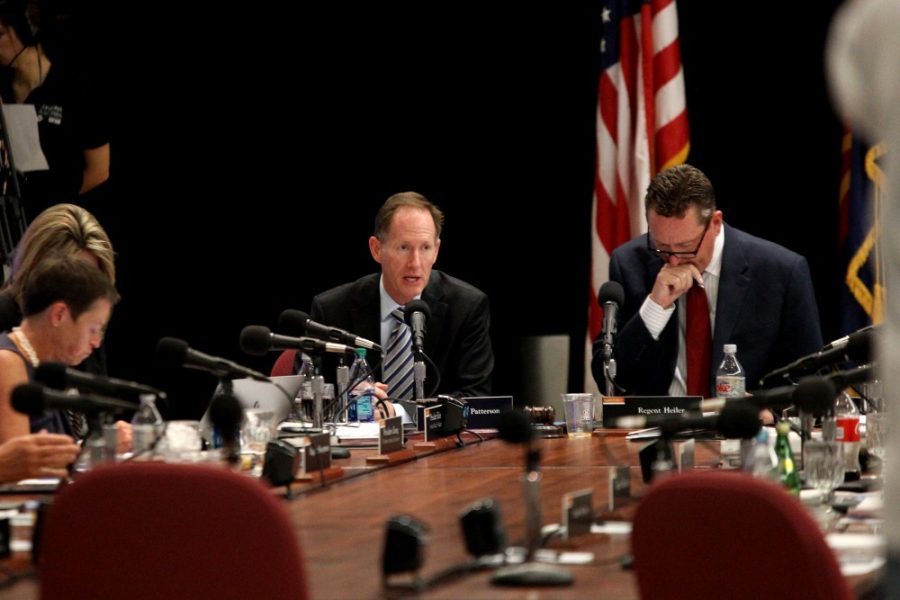The Arizona Students’ Association had a victory in their larger lawsuit against the Arizona Board of Regents on June 1, when the 9th U.S. Circuit Court of Appeals ruled in favor of the organization’s argument that the regents had infringed upon their First Amendment rights.
The ruling comes after a lower district court dismissed the ASA’s original complaint against the regents, stating that Arizona’s higher-ed policy makers had immunity from being sued for monetary damages. The higher circuit court, however, disagreed — ruling that the ASA could continue with the lawsuit after the group appealed the lower court’s decision in 2013.
The three-year-long court dispute between ASA and the board began in 2012, when the student organization allocated $120,000 of collected funds to support Proposition 204, a failed bill that would have allowed a one cent increase in sales tax to go towards funding higher education.
The student organization claims that the regents overstepped their boundaries and infringed on ASA members’ First Amendment rights when they cut funding to the group.
ASA formerly gained its funding through a semester student fee that students were able to opt-out of. Shortly after the group used money received from the student fees to support the failed proposition, the regents changed the way the organization receives funding.
At first the regents suspended funding all together, then forced students to opt-in to paying the fee instead of opting-out, which made gathering funds much more difficult for the group.
Zachary Brooks, president of the Graduate and Professional Student Council, said he has seen the effects of the policy change in the way the three public universities communicate.
“Students at the three campuses work together less, and that’s probably not good for students,” Brooks said. “The craziest thing to me about this is the fact that this is a group of students that came together and said that ‘we want more money in the state budget for higher education,’ and the Arizona Board of Regents worked against students, it’s just really bizarre to me that [the board] worked against students to get money for higher education.”
Stephen Montoya, attorney for ASA, said that the group has lost out on “hundreds of thousands of dollars,” since the policy change. His hope is that the policy can be reversed and funding can be collected as usual.
“They haven’t gotten any money since the lawsuit was filed,” Montoya said.
But, the case isn’t just about money. Montoya has argued that the board acted in retaliation to ASA’s actions; he feels that this is a constitutional issue, and on June 1 the U.S. Court of Appeals felt the same way.
“The panel held that the Students’ Association adequately alleged that it had engaged in the kinds of core political speech that trigger the First Amendment’s highest levels of protection. … The panel held that the collection and remittance of funds is a valuable government benefit, and a change in policy undertaken for retaliatory purposes that results in the deprivation of those funds implicates the First Amendment,” said the court in its ruling.
The decision allows the once dismissed lawsuit to be taken to court again. There is not a set court date for the coming hearing, but Montoya said that this will give him and ASA the opportunity to prove retaliation from the board.
“It was a huge win for us and it’s a win that will reverberate … throughout public education because it really did make it clear that — if it wasn’t already clear — that the government cannot take away any type of benefit in retaliation for free speech,” Montoya said.
A representative from the board did not get back to email requests for comment by press time.
Follow Lauren Renteria on Twitter.








